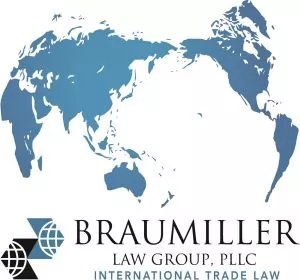- within International Law topic(s)
- with readers working within the Chemicals and Retail & Leisure industries
- within Energy and Natural Resources, Corporate/Commercial Law and Technology topic(s)
The steel trade with Mexico is particularly strategic at this moment. Companies are shifting supply chains to North America, and Mexico which has been an attractive manufacturing hub for various industries, such as automotive, aerospace, construction, electronics, household appliances, and more. This trend is driving strong demand for imported steel while simultaneously creating new export opportunities for Mexican producers. Much of this advantage stems from the USMCA, because steel originating within the USCMA region can qualify for preferential tariff treatment when traded within the United States and Canada, provided that the applicable rules of origin are fully met.
Nonetheless, in Mexico, steel has been facing strict rules and challenges related to origin verification, traceability, quality, and regulatory compliance. Also, non-USMCA steel has been subject to high import duties which have significantly affected competitiveness. Recently, on September 9, 2025, President Sheinbaum proposed an amendment to the Mexican harmonized tariff schedule law (LIGIE) to increase import duties by 25%, 35 or 50% on certain goods, including some steel products classified under chapters 72 and 73. This amendment is currently under review by Mexican Congress, which is expected to reach a decision by the end of this year.
In addition to higher import tariffs, steel is now subject to stricter controls, greater traceability, broader coverage, and a greater compliance burden. The Mexican government closely monitors this industry not only through audits but also during the application process for permits, notices and licenses. The processes are complex and vary dependent on whether the operation involves importing or exporting steel in Mexico. While these requirements are not new, they have been progressively reinforced through various amendments further tightening the applicable legal framework.
On April 15, 2024, the Minister of Economy amended Rule 2.2.19 and other legal provisions under the Foreign Trade Rules (Reglas y Criterios de Caracter General en Materia de Comercio Exterior)regarding the so-called Automatic Import Notices for Steel Products(AAIPS – Aviso Automático de Importación de Productos Siderurgicos). The purpose of this amendment was to consolidate the regulatory framework for the importing of steel products into Mexico.
According to these rules, certain goods imported into Mexico, and are classified under Chapter 72 and 73 of the LIGIE, are required to comply with AAIPS. Therefore, Mexican importers must first verify whether the specific harmonized tariff code of their product is subject to this requirement. Examples of goods subject to AAIPS include:
- Seamless and welded pipes
- Sheet metal rolls
- Hot-rolled and cold-rolled sheets
- Slabs
- Steel bars
- Wire rod
- Profiles
- Other specified steel products
In addition, Numeral 8, Section II, of Annex 2.2.1 of the above Foreign Trade Rules, importers must consider the following records:
- Mill Certificate: Required for goods classified under tariff items in headings 7206 to 7216, 7218 to 7228, and 7304.
- Quality Certificate: Required for goods classified under tariff items in headings 7202, 7217, 7229, 7301, 7302, and 7305 to 7317.
The mill and/or quality certificate must include:
- Detailed description of the goods (dimensions, technical, physical, chemical, and metallurgical specifications)
- Country of origin
- Name and contact information of the supplier
- Volume of the goods
- Other relevant identification data
Request for AAIPS authorizations must be submitted via the Mexican Single Window (Ventanilla Digital)and the authorizations must be communicated via email, – provided the applicant submits complete and accurate information.
The AAIPS request should include specific information, such as the tariff code, quantity to be imported, value, origin, certificate numbers, name and address of producer, mill name, product description, unit price by kilograms, among other information. This information must be consistent with the overall Customs records including the mill certificate and the quality certificate above. Failure to ensure consistency may result in suspensions, delays or penalties.
Importers may also choose to register under the Steel Importers Registry which allows authorization to be granted for one or more tariff codes with a validity of over one year.
Prior to this amendment, the Mexican Minister of Economy granted AAIPS authorizations relatively easily and fast with minimal requirements. However, the authority observed an increasing number of imports submitted with incorrect or unreliable information. As a result, it began reviewing applications more closely and rigorously, which has led to delays and occasional rejections, negatively affecting the industry.
For example, prior to the amendment, obtaining an AAIPS typically took 3 to 5 business days. Under the new rules, this process can extend to up to 30 business days in accordance with regulations, even when complete and correct information is submitted.
In summary, steel is a critical commodity for key industries in Mexico. While demand for steel has grown significantly in recent years, the Mexican government has tightened controls, increased regulatory scrutiny, created complex compliance requirements and therefore potentially higher import duties.
Steel importers must ensure compliance with AAIPS procedures, via accurate classification, proper valuation. The correct use of Customs regimes remains a very high priority, among other foreign trade and Customs compliance requirements in order to avoid delays, and a possible suspension or penalties. Ultimately, success in the steel trade with Mexico requires not only good fiscal business arrangements with clients and suppliers, but also a good basic knowledge and experience level with the regulatory framework and applicable process. Companies should closely monitor any developments and proactively adjust their strategies to remain competitive in the evolving Mexican steel market.
Join us for an insightful conference that delves into the pressing trade issues facing Mexico and the United States. This forum will bring together leading experts and business leaders to explore the complexities of trade agreements, tariffs, and regulatory challenges affecting both nations.
Check out our new Digital Magazine Get the inside scoop on the Braumiller Law Group & Braumiller Consulting Group "peeps." Expertise in International Trade Compliance.
The content of this article is intended to provide a general guide to the subject matter. Specialist advice should be sought about your specific circumstances.
[View Source]


